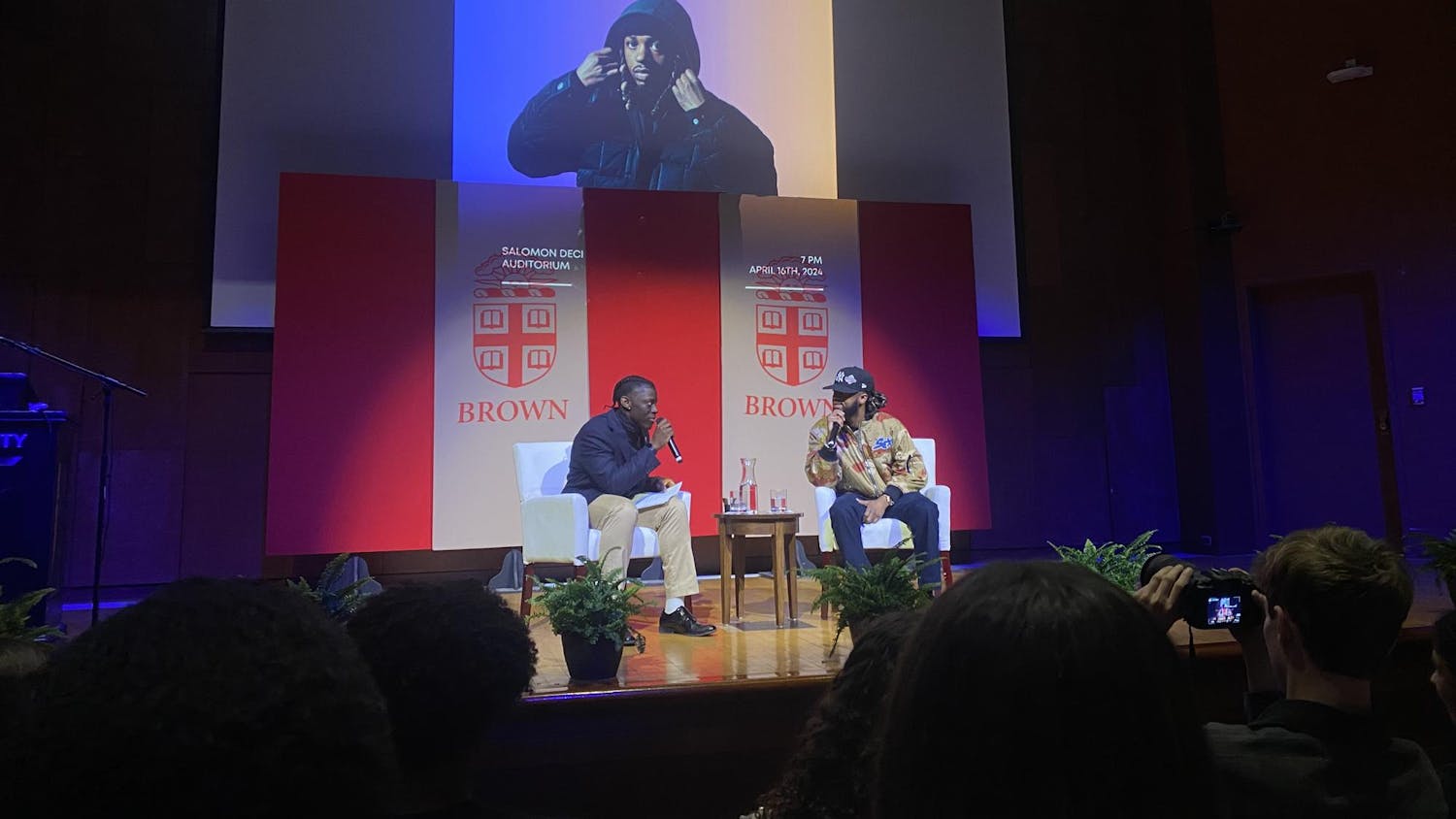This year rings in the 2010 FIFA World Cup, a competition that never fails to bring out the passion that both Harry Stark '11 and Steven Stark P'11 share for soccer. The two have collaborated on a guidebook about the World Cup that will be published at the beginning of April. The guidebook, "World Cup 2010: The Indispensable Guide to Soccer and Geopolitics," focuses on the significance of the World Cup and how it shapes country relations.
Stark and Stark wrote a shorter version of their guidebook four years ago and released it as an e-book on Amazon as part of a program called Amazon Shorts. The Starks then received a book deal and found a publisher who was "interested in doing a more conventional book to treat soccer as an aspect of culture," Steven Stark said.
The guidebook, Harry Stark's first publication, consists of four- to five-page essays about this year's 32 teams and their soccer culture, history and strategies of play. The book also focuses on the geopolitics of the World Cup.
Harry Stark said that to research his book, he and his father watched soccer games on television, looked at team sheets and lineups on the Internet and read a lot about soccer as an aspect of culture in books by authors such as Simon Kuper and Gabriele Marcotti.
Stark said that he has always been obsessed with soccer and that the time he spent living in Europe has had a huge impact on what soccer means to him.
"When I lived in Chester (United Kingdom), I talked about soccer, played soccer, studied the players and learned the local soccer language," Stark said.
Stark said the World Cup is even more of a truly global event than the Olympics.
"Take the last World Cup final — never before has half the planet done something together," Stark said.
Steven Stark also emphasized this point, saying that outside of the United States, the World Cup is a hallmark event.
"If you go to Italy or Bolivia or any African country, the countries shut down for a month. It's a premiere event. It's a time when the world is united. Over one billion people watch the final," he said.
Steven Stark said that culture plays an important part in the book because the book identifies teams by the way they approach soccer, play it and react to it.
For example, he said there is "a lot of geopolitics when the Netherlands plays Germany. They experience the Germans as occupiers and it's a huge aspect of how they play the game. When Cameroon plays a colonial occupier, it's a huge factor in how they perform. There's always a geopolitical aspect."
He said on paper, Spain is the best team in the world, but its various autonomous regions get in the way of its performance in matches.
"When you try to create a national team, it's difficult for Spain because players from different regions don't get along with each other, and it cripples the Spanish effort," Steven Stark said.
With regards to the U.S. and its soccer future, Stark and Stark were both convinced that the national passion for soccer and its culture needs to be improved.
"I think the notion that the U.S. is a nation in which we pride ourselves on a manual labor (hands not feet) is interesting," Harry Stark said.
Stark also said that the success of the women's soccer team has had a large impact on the popularity of soccer in the U.S.
"Sports culture has continued to be male-dominated. It's cemented in American sports. Because of sports culture being male-dominated, any sport which women are better than men is never going to hit it off," he said.
Stark and Stark both said that they were enthusiastic for the World Cup to take place in South Africa.
Steven Stark said that the idea that only the wealthiest nations in the world could host the cup is a ridiculous notion.
"Assuming it comes off well, it's going to be a wonderful thing," Steven Stark said.
Harry Stark said that Pan-Africanism will be interesting to observe.
"It will be interesting to see the support and unity from all African teams, which I haven't seen in the past. Home advantage is so big. They'll probably overachieve," Stark said.
The Starks said they are both looking forward to seeing the distinctive cultural imprint that the World Cup will make.
"Because the World Cup follows patterns, whenever it's on a new continent, weird things happen. It's a thrill. A lot of countries that haven't seen success before will rise up, which makes it more exciting," Harry Stark said.
Stark and Stark will continue their 2010 World Cup coverage over the summer for RealClearSports.com.




